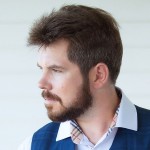You’ve briefly touched a very interesting point about how much the intentional lack of privacy can help against false accusation. It was just a side point, yet I think it deserves spelling out (and maybe some discussion).
In the podcast you’ve made an argument against intentional un-privacy, pointing out that people would believe the accusers if they have a strong voice, even if you can prove (maybe even in court) that you did no wrong. While your point is certainly valid, I’d love to point out a couple of things.
First, people are changing. As you know, I teach at a medical univercity, and I usually teach the doctors (as in, people currently in profession, medical professionals with formal education and at least several years of experience). But I also work with some medical students (as in, people in their early 20s who have yet to complete their formal medical education), and lately I’ve also been invited to teach a couple of courses in another university — to students as well. People are different, of course, and I can’t say “all students are the same” or “all doctors share the same attitude”, but a huge difference between the two groups struck me even when I started my teaching career. Students are — on average — more critical, they tend to doubt my words, and they tend to immediately google things and concepts that seem radical or conflicting to them. If I lay out a concept and the audience asks whether any supporting studies have been done, I usually give reference to publications; doctors tend to look at the reference, see the name of the publication, assess it as “generally credible” and that’s it, only one of 20 doctors would usually actually check the publication I’ve referenced. Out of 20 students, 18 would at least download the publication and skim through it (the other two being asleep during the lecture). They don’t just simply believe when I say “X proved that Y”, they need to check it first to integrate that knowledge into their picture of the world.
Lately I’ve been noticing the same attitude in younger doctors (yeah, people born in 1990s are already experienced medical professionals, still a shock to me ;) — as those former students that grew up with Google at their hands and got used to verifying everything grow into doctors. So, what I see is more and more people don’t simply believe what they are told, even if that comes from someone with authority. (Granted, my sample is not the general populace, but that’s just what I see.)
Imagine if your life was streamed and recorded (both video and audio) 24/7. There would be almost no privacy at all (you could still keep your thought private, as well as turn your screens so that cameras don’t see them), but you’d have waterproof evidence of where you have been and what you have done each and every second. No accusations of crimes, harassment, rape, or whatever would ever fly with anyone who botherer to check — and my point is that the new generation does bother to check noticeably more than the old ones.
Trouble is, this would only work with true 24/7 broadcasting and recording. Half an hour off-grid would give your false-accuser power to claim that was exactly the timeframe you’ve commited the wrongdoing in question. The catch here is, even if I and my family were OK with the 24/7 recording of my life, I’d quickly end up with no money or even in jail.
Because adding the camera factor would immediately turn what me and the wife do every now and then into the production of pornography. The Criminal Code of Russia says that “illegal production of pornography” is to be punished with a fine of up to two years’ worth of offender’s income, or even up to two years of jail time. And I’m aware of a precedent where the court indicated there was “no law explaining the legal production of pornography, so any such production should be treated as illegal” (Russian courts are lovely that way).
